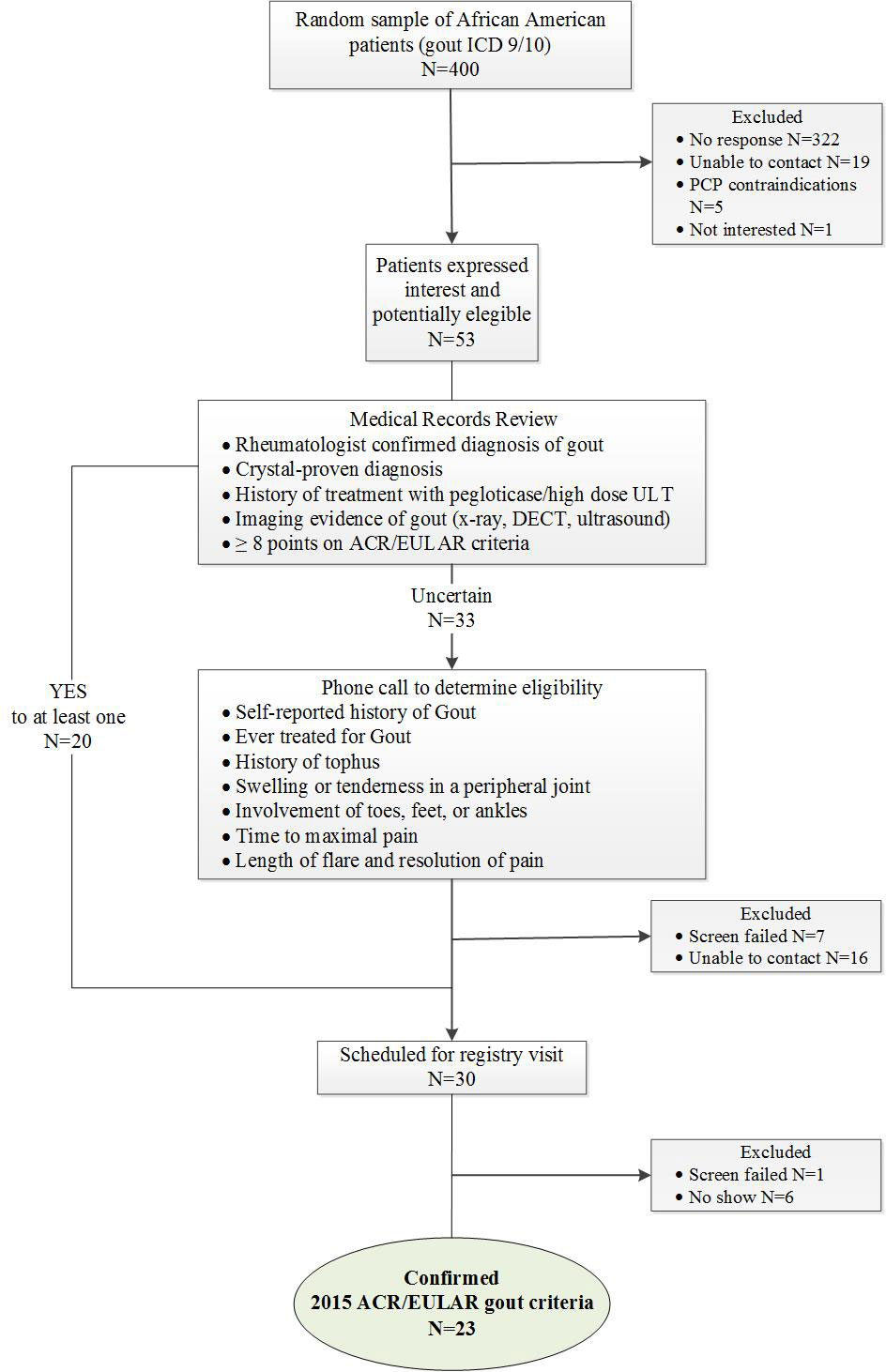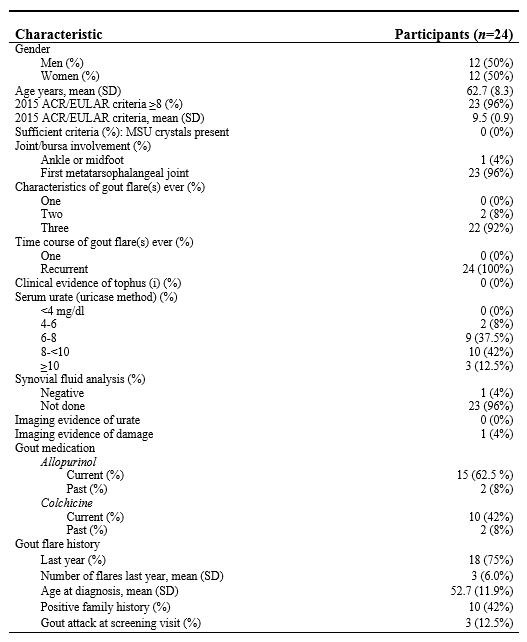Session Information
Session Type: Poster Session (Sunday)
Session Time: 9:00AM-11:00AM
Background/Purpose: Gout is frequently misdiagnosed and/or miscoded, making approaches to identifying eligible patients for observational and interventional studies more challenging. Ethnic and racial minorities are under-represented in many gout studies. Methods to better identify minorities and patients with confirmed gout will ensure studies have better validity and more generalizability. We defined efficient methods for identifying African Americans (AA) interested in participating in a gout registry who satisfied the American College of Rheumatology (ACR) and European League Against Rheumatism (EULAR) gout classification criteria.
Methods: We identified all AA patients seen at University of Alabama at Birmingham from 01/09/2017 to 31/08/2018 with an ICD 9/10 code for gout. Patients not “opted out” by their primary care provider (PCP) were invited to participate via electronic letters and/or mailed invitations. Those interested underwent detailed medical record review followed by phone contact to determine gout eligibility. Those with a high likelihood of meeting gout diagnostic criteria were invited for an in-person visit to confirm diagnosis (Figure 1). We compared descriptive characteristic of participants enrolled in the registry with the larger populations of potentially eligible subjects.
Results: From 3,032 AA patients with an ICD 9 /10 gout diagnosis we generated a random sample of 400 patients. 5 patients were excluded by their PCPs, thus 395 patients were preliminarily eligible who we attempted to contact. 1 patient (< 1%) communicated lack of interest, 19 (4.8%) were unreachable, 322 (81.5%) did not respond to our invitation, and 53 (13.4%) expressed preliminary interest and underwent medical record review. We successfully scheduled 30 subjects for a registry visit, 24 completed the visit, and 23 (6% of initial sample) satisfied 2015 ACR/EULAR gout classification criteria (see Table 1). We found no significant difference in age, sex, and the number of medical encounters in the last year between enrolled patients and the remaining population.
Conclusion: We present an efficient strategy for identifying and recruiting AA patients with ACR/EULAR classified gout into a population-based registry. Among a randomly selected cohort of AAs with an initial ICD 9/10 diagnosis code of presumed gout, slightly under 15% expressed interest and eventually 6% satisfied the 2015 ACR/EULAR criteria and successfully enrolled in the registry. Our experience emphasizes a potential approach as well as some challenges in creating a generalizable gout registry of under-represented minority patients.
To cite this abstract in AMA style:
Adami G, Rosas G, Melnick J, Foster J, Rahn E, Mudano A, Curtis J, Merriman T, Bridges S, Saag K. Methods to Efficiently Recruit Minority Patients with Gout for Clinic-Based Registries [abstract]. Arthritis Rheumatol. 2019; 71 (suppl 10). https://acrabstracts.org/abstract/methods-to-efficiently-recruit-minority-patients-with-gout-for-clinic-based-registries/. Accessed .« Back to 2019 ACR/ARP Annual Meeting
ACR Meeting Abstracts - https://acrabstracts.org/abstract/methods-to-efficiently-recruit-minority-patients-with-gout-for-clinic-based-registries/


